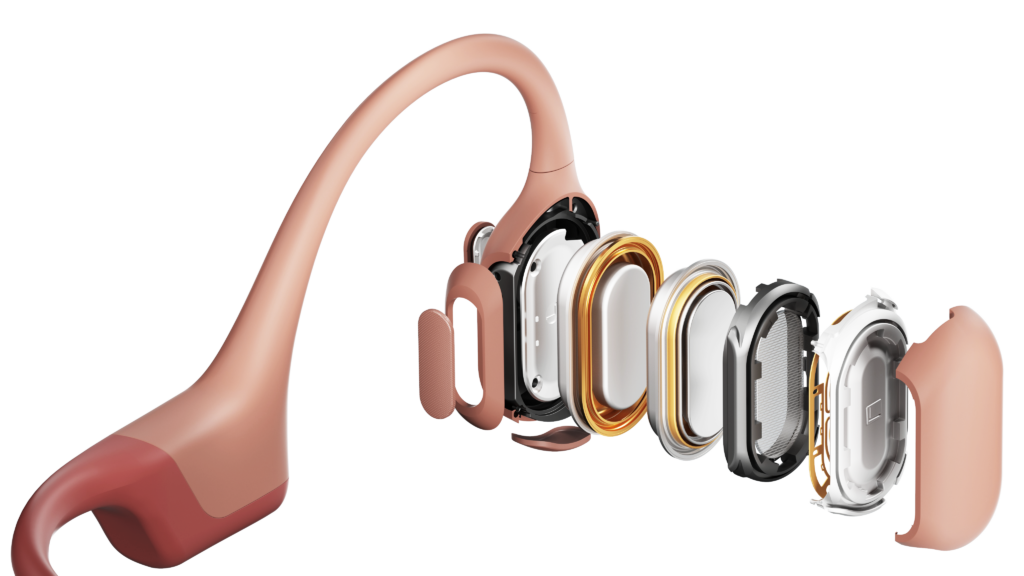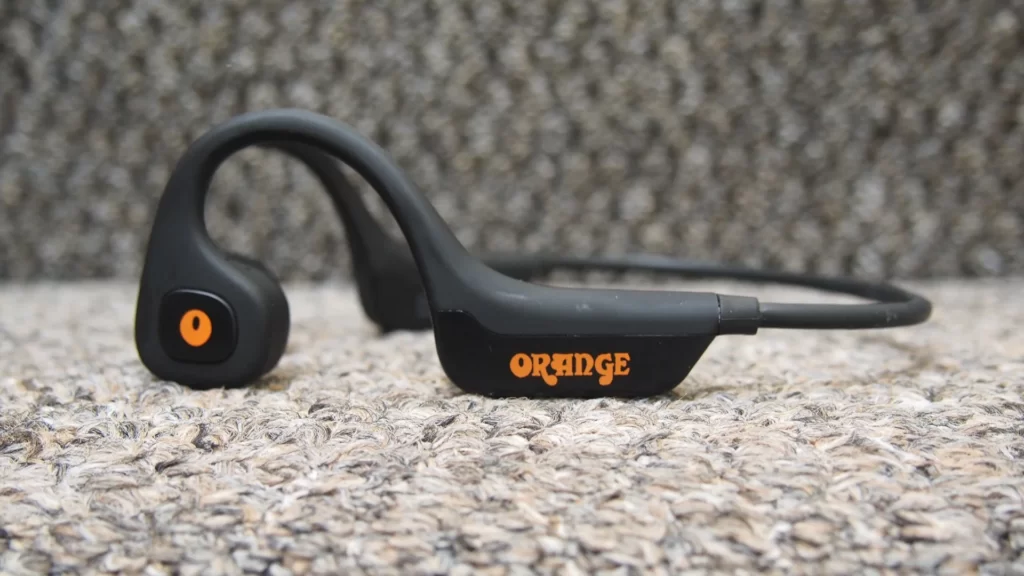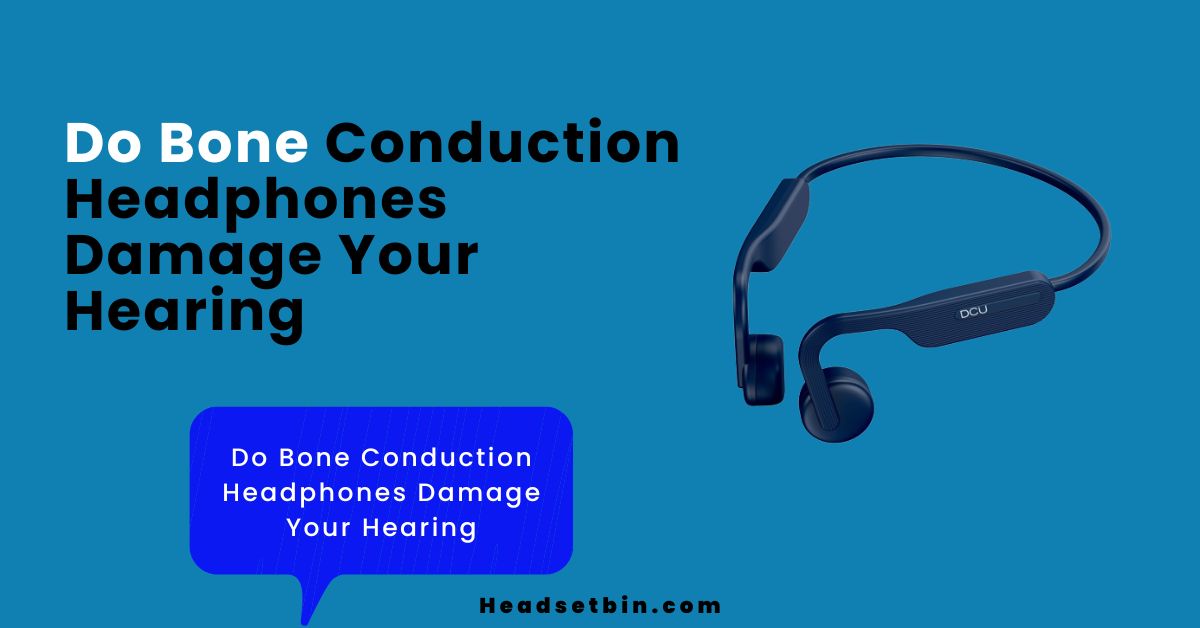If you are a cyclist then you must have cycling headphones or bone-conduction headphones. Have you ever wondered if the latest tech trend, bone-conduction headphones, could be harming your hearing? You might ask yourself a question do bone-conduction headphones damage your hearing?
In this article, we dive into the science behind these headphones and explore the potential impact they have on your hearing.
Read on to learn more about how these headphones work and whether or not they are dangerous for your ears.
What are Bone Conduction Headphones?
There is a common misconception that bone-conduction headphones are somehow bad for your hearing. This simply isn’t true. Bone conduction headphones actually have a number of benefits over traditional headphones, and they can be used safely by people of all ages.
So, what exactly are bone-conduction headphones? They work by vibrating the bones in your head, which then send signals to your inner ear. This means that you don’t have to put anything in or around your ears, which can be a big relief for people who suffer from allergies or sensitivities. Bone conduction headphones are also great for people who want to be able to hear their surroundings while they’re working out or running.
Of course, there are a few things to keep in mind when using bone-conduction headphones. First of all, they’re not going to provide the same level of sound quality as traditional headphones. This is because the vibrations aren’t able to travel through the air as sound waves do. However, many people find that the trade-off is worth it for the increased comfort and safety that bone-conduction headphones offer.
It’s also important to note that you may need to experiment with different brands and models of bone-conduction headphones to find one that works well for you. Some people find that they need to use a higher volume than usual in order to hear properly through headphones. Others find that certain brands cause more discomfort than others. If you’re having trouble finding a pair of bone
How do Bone Conduction Headphones Work?

Bone conduction headphones work by sending vibrations through your bones to your inner ear. This bypasses the need for your outer ear to pick up sound waves, which can damage your hearing over time.
Bone conduction headphones are a great option for people who want to enjoy their music without damaging their hearing. However, it may not be suitable for everyone. If you have any concerns about whether or not bone-conduction headphones are right for you, please consult with a hearing healthcare professional.
Do Bone Conduction Headphones Damage Your Hearing?
When it comes to bone-conduction headphones, there is a lot of debate about whether or not they are safe. Some people claim that they can damage your hearing, while others say that they are perfectly safe. So, what is the truth?
There is no definitive answer, as there is no scientific evidence to either support or refute the claim that bone-conduction headphones can damage your hearing. However, there are a few things to consider if you are concerned about the safety of these devices.
Average Level of Sound:
First, it is important to remember that loud noise can damage your hearing regardless of the source. Bone conduction headphones typically emit lower levels of sound than traditional headphones, so they are unlikely to cause hearing loss if used properly.
Sensitive Ears:
Second, if you already have hearing loss or are particularly sensitive to sound, you may want to avoid using bone-conduction headphones or use them with caution.
Take Breaks:
Finally, be sure to follow the manufacturer’s instructions for use and take breaks from using them if you experience any discomfort.
Overall, there is no clear evidence that bone-conduction headphones are dangerous. However, if you have concerns about their safety, it is best to consult with a healthcare professional before using them.
Pros of Bone Conduction Headphones:

If you’re looking for headphones that won’t damage your hearing, bone-conduction headphones are a great option. Here are some of the pros of using bone-conduction headphones:
Not Goes Into Ear Canal:
They don’t rely on earbuds that go into your ear canal, so they’re much less likely to cause damage to your hearing.
Doesn’t Block External Noise:
They don’t block out all external noise, so you can still hear what’s going on around you. This is a great safety feature if you’re working out, cycling, or running outdoors with your best cycling headphone.
Comfortable and Durable:
They’re very comfortable to wear and won’t cause any pain or discomfort like traditional headphones can. Plus, these headphones are also durable with a high-quality build.
Affordable:
They’re relatively affordable, especially when compared to high-end audiophile headphones.
Wireless & Lightweight:
They’re wireless and lightweight, so they’re easy to take with you wherever you go.
Overall, bone-conduction headphones are a great option if you’re looking for a comfortable and safe way to listen to music or take calls.
Cons of Bone Conduction Headphones:
There are a few potential drawbacks to using bone-conduction headphones.
Average Sound Quality:
First, some people find that the sound quality is not as good as traditional headphones. This is because the sound waves are not being sent directly into your ear canal.
Expensive than Traditional Headphones:
Additionally, bone-conduction headphones can be more expensive than traditional headphones.
Finally, there is a small risk that using these types of headphones could damage your hearing. But it totally depends on how you use your bone-conduction headphone.
Alternatives to Bone Conduction Headphones:
If you’re looking for alternatives to bone-conduction headphones, there are a few different options available.
Traditional headphones or earbuds can work well if you don’t have hearing loss or if your hearing loss isn’t severe. If you have mild to moderate hearing loss, however, you may want to consider using assistive listening devices (ALDs). These devices amplify sound so that you can hear better.
Some examples of ALDs include personal FM systems, TV listening systems, and amplified phones. If you have severe hearing loss, you may need to use a cochlear implant or other implants to help improve your hearing.
Conclusion:
When it comes to bone-conduction headphones, there is no clear consensus on whether or not they are damaging to your hearing. Some experts suggest that they may be harmful due to the way they vibrate the bones in your head, while others believe that they are safe as long as you don’t use them for extended periods of time.
Ultimately, it is up to you to decide whether or not you want to use bone-conduction headphones, as only you can know how they affect your hearing.

